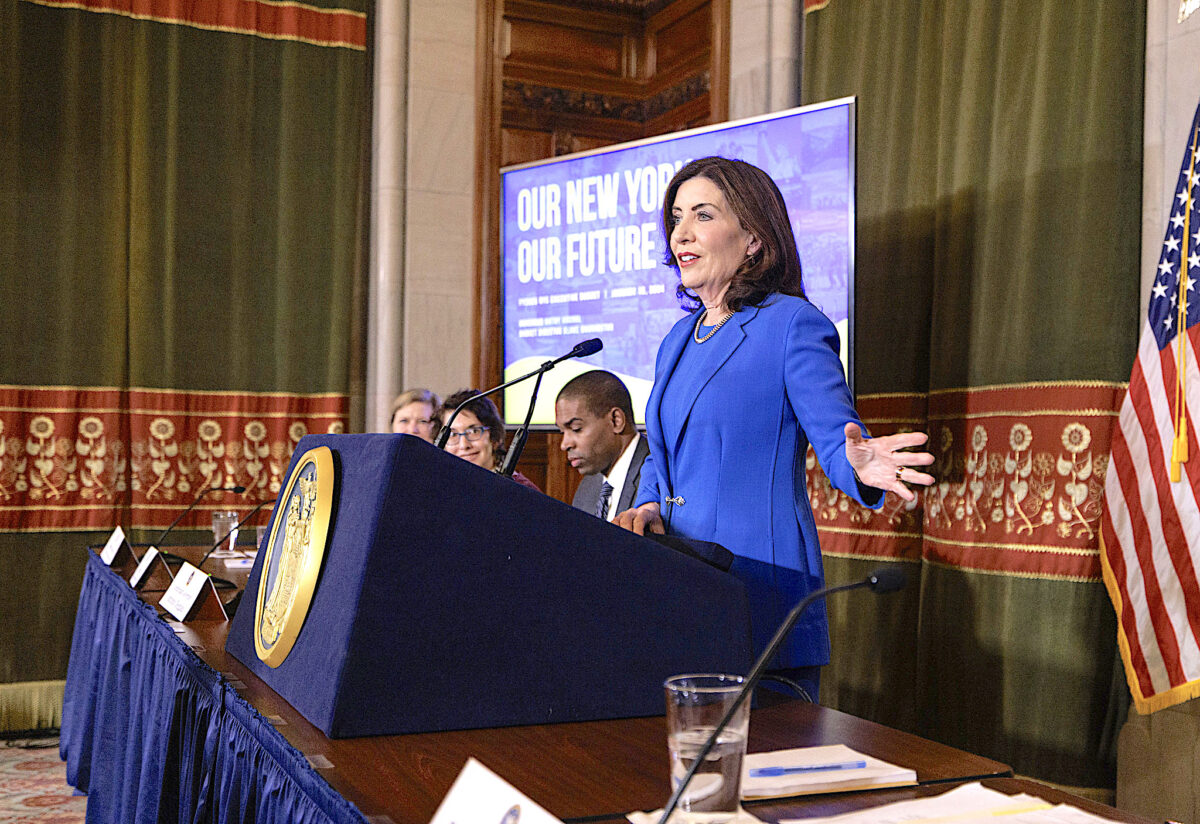New York Gov. Kathy Hochul today submitted her proposed Fiscal Year 2025 Executive Budget, which totals $233 billion. Instead of showing a deficit, the budget shows an increase in state operating funds spending by $5.9 billion from the last budget but also estimates an increase in tax revenues of $5.9 billion. It does not propose increasing state income tax rates.

The proposed budget raises state expenditures for mental health by more than 45% to $4.8 billion. It includes $35.3 billion for school aid in School Year 2025, an increase of approximately 2.7%. The budget includes $7.9 billion in state operating aid for the Metropolitan Transportation Authority, which plans to collect an additional $1 billion a year through its congestion pricing toll plan affecting drivers going below 60th street in Manhattan.
Hochul’s proposed budget includes $2.4 billion to help New York City pay for aid to immigrants that have been arriving in the city in record numbers. This will include $500 million taken from state reserves set aside for “one-time emergencies.”
The proposed budget incudes $35.5 billion to fund Medicaid Health Care for eligible New Yorkers
“This budget makes it clear that fiscal discipline can co-exist with progressive, people-driven policies,” Hochul said. “I am committed to fight the right fights on behalf of New Yorkers, and to pursue the common good with common sense by seeking common ground.”
Gerard Kassar, chairman of the New York State Conservative Party, said, “What may be most egregious is the $2.4 billion in taxpayer funds that Mrs. Hochul plans to spend on migrant services, while New Yorkers struggle with every imaginable hike in food, housing, gas, and other cost of living increases. Meanwhile, the governor is setting aside $100 million in tax dollars to pay for political campaigns. It is any wonder why 100,000 New Yorkers left the state last year.”
Nathan Gusdorf, director of The Fiscal Policy Institute, an independent nonpartisan nonprofit research and education organization, said, “Despite the state’s improving economic outlook, the modest Executive Budget lacks the deep investments needed to reverse New York’s affordability crisis and stem the state’s population loss. The legislature should build upon the governor’s budget by deepening investments in affordable housing construction, a renewable energy transition, public funding for childcare, and the state’s public universities and community colleges. Hochul’s decision to use a small portion of the state’s robust reserves for asylum seekers is a fiscally sound and responsible use of reserves to support New York City.”
The organization Save the Sound, which is based in Larchmont, was quick to point out that after having expressed a “continued commitment for the Clean Water Infrastructure Act,” which has been funded at $500 million each of the last several years, Hochul is now proposing spending $500 million over the next two years.
“The governor’s budget appears to essentially halve the state’s investment in wastewater and drinking water infrastructure,” said David Ansel, vice president of water protection for Save the Sound. “For the benefit of public health and protecting and restoring our fragile ecosystems in the Long Island Sound region and across the state of New York, we need to maintain the momentum for clean water resources, not go backwards.”
The state legislature will be reviewing the budget against a March 31 deadline by which time a finalized budget agreement is due.




















